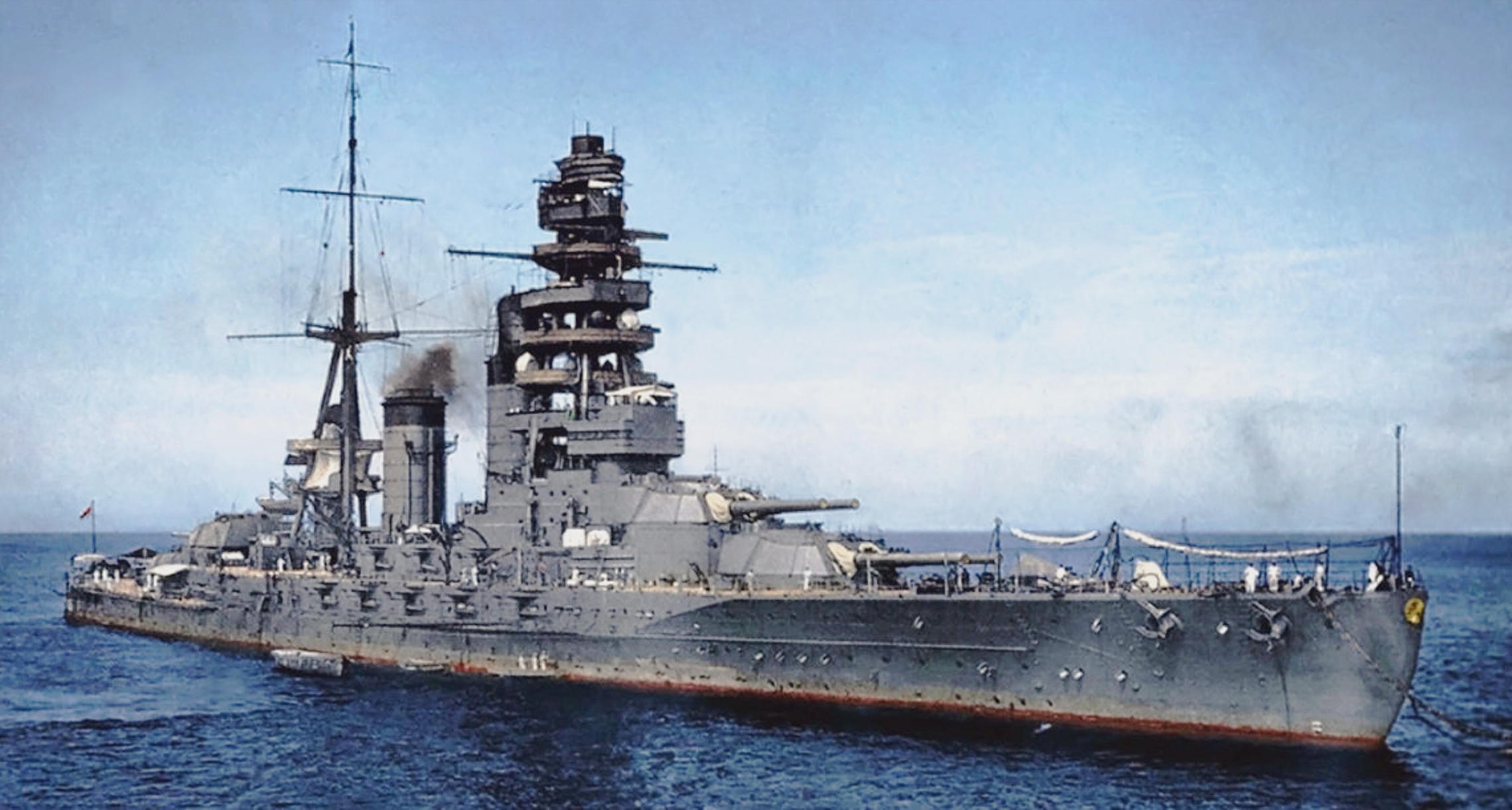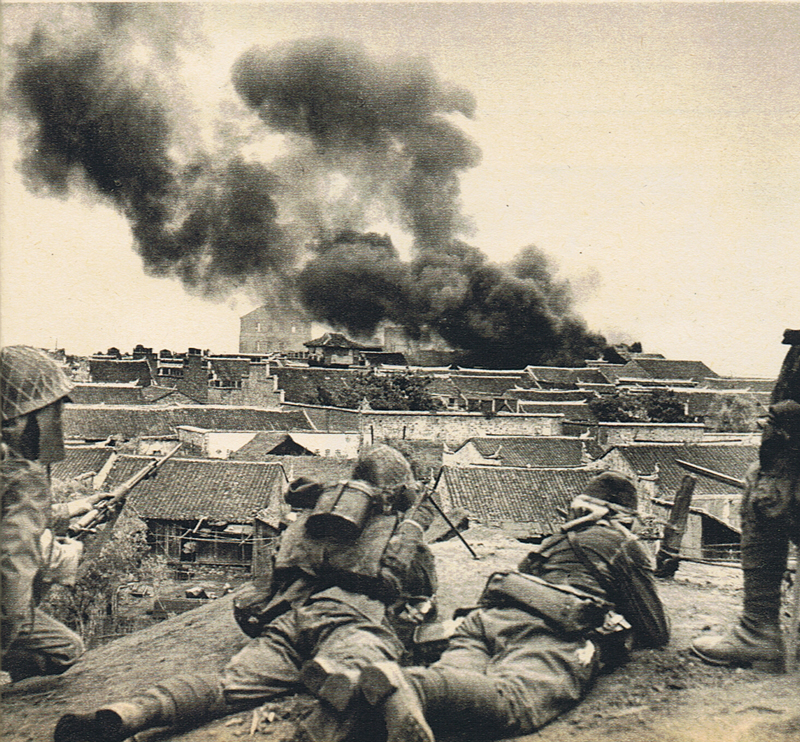A Not So Short List: IJN Campaign Priorities
In Tokyo the IJN was faced with a problem.
Japan and its Empire were a fairly compact area. This gave them a strong defensive position as they could concentrate their fleet in the same area and easily move to head of an attack from any side. The British by contrast had possessions stretched across nearly the entire pacific rim, and with no means to defend all of them.
However, America’s recognition of the war between the UK and Japan meant that Japan was cut off from American oil. This meant that Japan could not rely on its defensive advantages. The impetus was on Japan to strike. Additionally many of the Japanese navy’s upper ranks had a fairly realistic appreciation of the industrial balance. The UK out produced Japan in every category of manufacturing, and ships were no exception. Japan needed to hit fast and hard.
The question was where.
The ship building facilities of Canada and Australia? Too far out of the way and not an immediate threat.
Britain’s assorted Pacific island colonies? While it would be useful, and perhaps even easy, to sever the supply line from Australia to Canada, these were again not an immediate threat.
The Malay Barrier on the other hand was a clear front runner. The Australian half of Papua and the British possessions on Borneo and the Malay Peninsula were obvious targets. Britain would have a hard time breaking into the Pacific if Singapore and Rabaul were to be strongly occupied. In addition to direct control over Brunei’s oil fields, this would also put the Dutch East Indies in a vice-like grip, securing the sea lanes for oil tankers and providing excellent staging grounds for a take over should the Dutch put up an embargo of their own.
Preparations for such a strike took some time. Stockpiles of equipment and supplies had to be prepared on Formosa for the western pincer and Truk for the western one.
However, mounting pressure to get in the decisive blow before Britain can work itself up to a proper war footing and the need to push British sub bases away[1] was enough to overcome the IJN’s historical aversion to splitting their forces ahead of decisive actions.
The Decisive Action: The Western Pincer Weighs Anchor
On December 24 1938 the western pincer departed Takao, Formosa.
Despite making up only half of Japan’s striking force, the naval force bearing down on Borneo was about as capable as the entire navy of France or Italy. It had three aircraft carriers, seven battleships, three seaplane tenders, four heavy cruisers, seven light cruisers, and 21 destroyers, and numerous smaller craft.
The major fleet assets of the weststern pincer were organized as such:
First Battleship Division:
-Ise (Battleship) (Flag)
-Hyūga (Battleship)
-Fusō (Battleship)
-Yamashiro (Battleship)
Third Battleship Division:
-Kongō (Battleship)
-Kirishima (Battleship)
-Haruna (Battleship)
First Carrier Division:
-Kaga (Fleet Carrier)
-Akagi (Fleet Carrier) [2]
-Hōshō (Light Carrier)
Third Carrier Division:
-Kamoi (Seaplane Tender)
-Kagu Maru (Seaplane Tender)
-Kamikawa Maru (Seaplane Tender)
Additionally, vast numbers of transport ships would tag along to ferry over the newly established Malayan Area Army, consisting of the new 6th army and the 12th army.
The centrepiece of the 6th army was the Imperial Guards Division. However, perhaps more intimidating was the accompanying 16th Division which had recently partook in the bloody Battle of Wuhan and was accordingly well acclimated to high intensity operations.
Additional specialization was provided for by the Taiwan Independent Combined Brigade. It had previously primarily served as Formosa’s garrison force and accordingly had more limited experience in China. However, it had been drilled extensively in amphibious operations, and it was ideal for the anticipated forced entry operation.
Due to shipping constraints the 12th army would remain on Taiwan and slowly be ferried in after Borneo had been secured. The 12th Army had been primarily a training body and rear area security force. It was composed of the 21st division, a very new triangular division, and the 114th division, which was also fairly new yet was still organized as a square division. That such a comparatively weak force was also selected is indicative of their intended role as rear area security as the 6th moved on.
Like a Tsunami Bearing Down on Australia: The Eastern Pincer Weighs Anchor
On December 25 1938 the eastern pincer departed Truk.
For its naval component it included two battleships, three aircraft carriers, two seaplane tenders, two heavy cruisers, five light cruisers, 14 destroyers, and many lighter fleet assets.
The Major fleet assets of the eastern pincer were organized as such:
Second Battleship Division:
-Nagato (Battleship) (Flag)
-Mutsu (Battleship)
Second Carrier Division:
-Sōryū (Fleet Carrier)
-Ryūjō (Light Carrier)
Fourth Carrier Division:
-Notoro (Seaplane Tender)
-Kinugasa Maru (Seaplane Tender)
Japanese Battleship Nagato
Accompanying them were the 20th Infantry Division and the 6th Infantry Division. Both were veterans of the Second Sino-Japanese War, though not equally so. Whereas the 20th had returned to garrison duties in Korea after a short and almost uneventful tour of North China in 1937, the 6th had participated in the battles of Beijing, Nanking, and Wuhan. However, both had participated in the Beiping–Hankou Railway Operation and so there was some degree of familiarity and companionship between the two despite their contrasting resumes. Due to shipping constraints only the 6th would be in the first wave, with the 20th being ferried over afterwards.
The bulk of the force would be sent to Papua, where the plan was to drive the Anglo-Australians from the island and threaten Australia itself from Port Moresby. Little resistance was expected on New Britain and the surrounding islands. The town of Rabul had been obliterated the previous year by a volcanic eruption and it was hoped that the anglos would not waste their resources garrisoning a ghost town. A single brigade of the 6th division would be tasked with securing them.
Soldiers of the IJA's 6th Division
---
[1] On November 17 a cargo ship sending supplies to IJA forces committed to Hong Kong was torpedoed and lost with all hands, this marked the start of daily shipping losses to RN submarines.
[2] Akagi had been rushed through its post refit trials to partake in the operation.
A/N:
*WAAAAAAANNNNNNNKKKKKEEEEEEERRRRRRR!!!!!!!!!!!
ight I'll stop outing myself as a weeb...
Yeah a bit of a skimpy update, some IRL stuff has cropped up, and I’ll admit that I didn’t anticipate how much of a bother keeping track of which ships are going where would be, and accordingly I slacked hard for most of the week lol.




